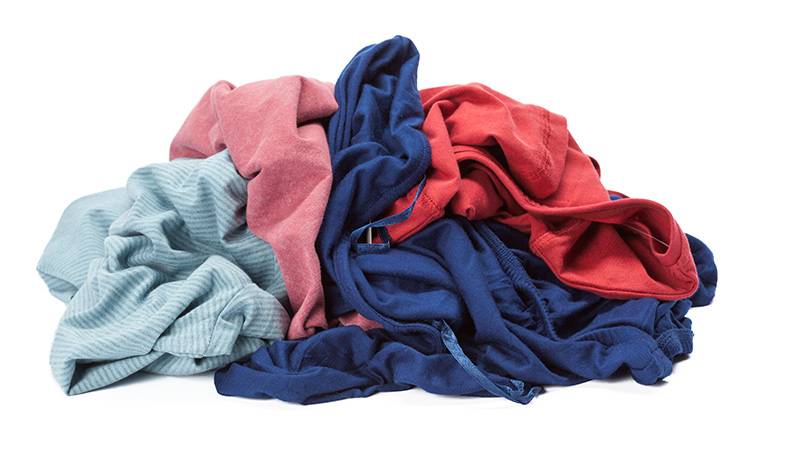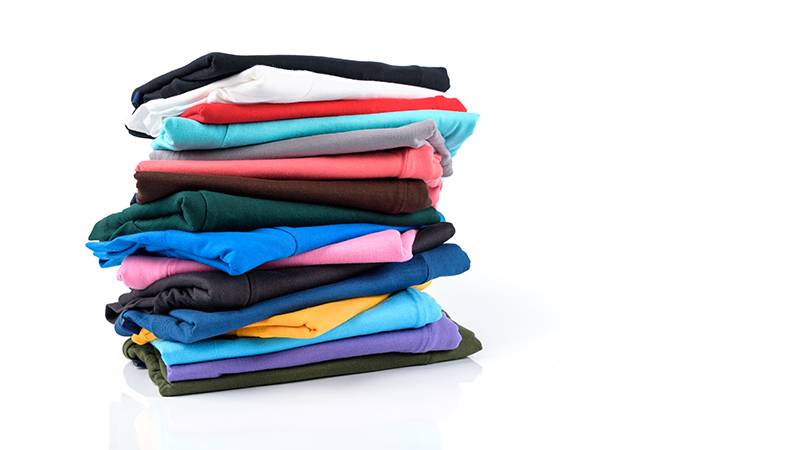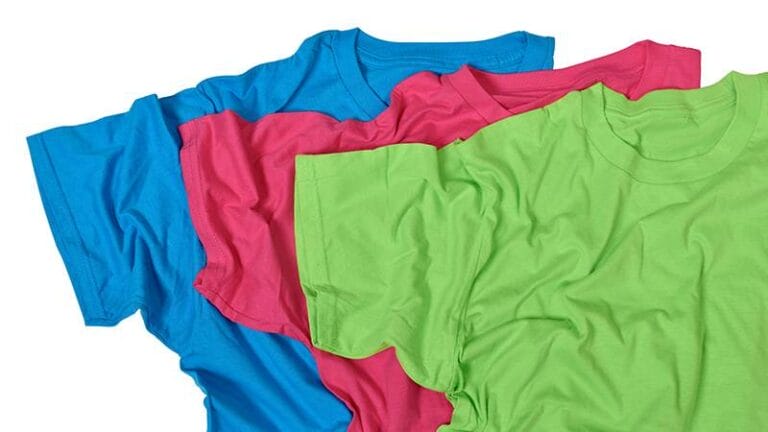Old T-shirts don’t have to end up in the trash—they can become something new and incredibly useful. T-shirt bags are a simple and creative way to repurpose your worn-out clothes into reusable, eco-friendly shopping bags.
Upcycling like this isn’t just about reducing waste; it’s about taking small, meaningful steps toward a more sustainable lifestyle. Plus, there’s something satisfying about turning something forgotten into a practical item that you’ll actually use.
This guide will take you through an easy process to craft your own T-shirt bags. Whether you’re a DIY pro or a complete beginner, it’s a fun and impactful project that helps both you and the planet. Let’s get started!
Gathering Your Materials to Make T-Shirt Bag
Before diving into the transformation process, let’s gather the essentials. You’ll need:
- Old T-shirts: The stars of our project. Choose ones made of durable cotton for the best results.
- Scissors: Sharp enough to cut through fabric cleanly.
- Sewing kit or sewing machine: Depending on your preference and availability.
- Measuring tape: To ensure your bag turns out just the right size.

When selecting T-shirts, opt for those without significant wear or tear. A little stretch is fine, but what you’re really looking for is material that can hold up to the weight of groceries. Solid colors or interesting patterns can add a personal touch to your eco-friendly shopping bags.
Step-by-Step Guide to Making Your Eco-friendly Reusable T-Shirt Bag
Preparing Your T-Shirt
- Lay your chosen T-shirt flat on a surface. Smooth out any wrinkles to ensure an even cut.
- Cut off the sleeves just outside the seams to create the bag’s handles. If you prefer wider handles, adjust your cut accordingly.
- Next, cut out the neckline to create a larger opening for your bag. You can decide on the depth of this cut based on how deep you want your bag to be.
- Turn the T-shirt inside out and lay it flat again. This prepares it for the sewing step, ensuring the seams will be on the inside.
Sewing Your Bag
- Starting at the bottom of the T-shirt, sew straight across from one side to the other. This creates the bottom of your bag. For those without a sewing machine, a needle and thread will work just fine—ensure your stitches are tight and evenly spaced for durability.
- For added strength, you can sew a second line parallel to the first or use a zigzag stitch. This step is especially recommended if you plan to carry heavier items in your bag.
- Once the bottom is securely sewn, turn the bag right side out. You’ve now got the basic structure of your reusable shopping bag.
Adding Personal Touches
- Customization is where you can really let your creativity shine. Consider adding designs or patterns using fabric paint or iron-on transfers for a personal touch.
- If you’re skilled with a needle, you can embroider your initials or a favorite quote onto the bag.
- For more functionality, sew on additional pockets inside or outside the bag using fabric from another T-shirt. This is great for organizing smaller items.
- Experiment with dyeing your bag for a pop of color or a tie-dye effect. Just remember to use eco-friendly dyes to keep in line with the sustainable theme.
You’ll not only create a practical item but also make a positive impact on the environment. Each bag you make reduces the need for plastic shopping bags, aligning with eco-friendly practices and supporting a sustainable lifestyle. Plus, the personal satisfaction of crafting something unique adds to the joy of this upcycling project.
Care and Maintenance of Your DIY T-Shirt Bag
Caring for your DIY shopping bag is essential to ensure it serves you well on many shopping trips. Here are some straightforward tips to keep your bag in top condition:
Washing
Your upcycled T-shirt bag can be easily cleaned in the washing machine. Use a gentle cycle with cold water to prevent shrinking and preserve the fabric’s integrity. For bags with custom designs or patterns, turning them inside out before washing can protect the details from fading.
Drying
Air drying is the best way to preserve your bag’s shape and strength. Hang it outside or in a well-ventilated area. Avoid using a dryer, as high heat can cause the fabric to shrink or warp.
Storing
When not in use, fold your bag neatly and store it in a dry place. Keeping a few in your car or by your door ensures they’re always handy for impromptu shopping trips, reducing the temptation to use plastic bags.
Why Choose T-Shirts for Your DIY Shopping Bags?

T-shirts, a staple in nearly everyone’s wardrobe, are often made from cotton, a material renowned for its durability and flexibility. These qualities make T-shirts an excellent choice for repurposing into shopping bags. Cotton’s strength ensures that your bags can handle the weight of groceries without tearing, while its flexibility allows for easy folding and storage, making it a practical option for everyday use.
Moreover, the environmental impact of switching to reusable T-shirt bags cannot be overstated. In a world where over 500 billion plastic bags are used annually, the shift towards using durable, reusable bags made from upcycled T-shirts can significantly reduce the number of plastic bags produced, used, and discarded. This not only helps in cutting down the amount of plastic waste that ends up in landfills and oceans but also contributes to the reduction of pollution and the conservation of resources used in plastic bag production.
The process of transforming T-shirts into shopping bags is a direct action towards sustainable living. It’s a creative and effective way to upcycle materials that might otherwise go to waste, aligning with a more eco-friendly lifestyle. By choosing to make your own shopping bags from T-shirts, you’re not just crafting a unique item with personal value; you’re also making a statement against the disposable culture that contributes to environmental degradation.
This approach embodies a shift towards more responsible consumption patterns and showcases how individual actions can collectively lead to significant environmental benefits. It’s a step towards embracing a sustainable lifestyle, reducing plastic bag usage, and contributing to a healthier planet for future generations.
The Bigger Picture: The Impact of Upcycling on Our Planet

Upcycling, particularly in the context of textiles, plays a critical role in environmental conservation. Consider this: annually, the average person throws away approximately 70 pounds of clothing and other textiles, contributing to immense landfill waste. Upcycling these materials can significantly reduce this figure.
By repurposing textiles, we can save thousands of gallons of water and reduce carbon emissions. For instance, producing a new cotton T-shirt can use over 700 gallons of water. Upcycling bypasses the need for new raw materials, conserving an enormous amount of natural resources.
Moreover, upcycling doesn’t just reduce waste and resource consumption; it also diminishes our carbon footprint. Textile production is a major contributor to global carbon emissions, so by upcycling, we directly cut down on these harmful outputs.
Adopting a sustainable lifestyle that includes upcycling projects like turning old T-shirts into shopping bags is more than a creative endeavor; it’s a powerful tool in the fight against climate change. By integrating more upcycling into our daily lives, we not only give new life to otherwise discarded items but also make a tangible impact on our planet’s health. Let’s embrace upcycling as a key component of our sustainable living practices, making a positive difference for our environment and future generations.
Conclusion
In transforming old T-shirts into reusable shopping bags, we tap into both environmental and personal benefits. This simple act of upcycling reduces waste, conserves resources, and offers a creative outlet for expressing personal style.
By choosing to repurpose what we already own, we take a stand against the disposable culture that burdens our planet.
Let’s not stop here. I encourage you to take this project as a starting point and explore more ways to upcycle. Share your creations and inspire others to join this meaningful journey towards sustainability. Together, we can make a significant impact. Start upcycling today and be the change you wish to see.


